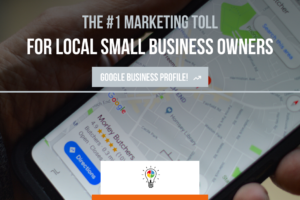
Have You Set SMART Goals for Your Website’s SEO?
How do you create and implement an SEO strategy that actually gets results? You need to plan well and set clear, achievable goals. This is why SMART goal setting is essential to a successful SEO strategy.
What Is SMART Goal Setting?
The SMART method sets out criteria for setting effective goals. The goals must be:
Specific. Your goals should clearly and specifically state what you want to achieve. “More traffic” or “more leads” isn’t good enough. Instead, make sure your goals include numbers and percentages, stating explicitly what you want to accomplish.
Measurable. Your goals need to include specific criteria to measure your progress so you know whether you’re achieving them or not.
Achievable. Your goals should be realistic and attainable. Each goal should be something you can accomplish in the time you set out to do it.
Relevant. Your goals must contribute to your broader, overall business goals.
Time-Based. Your goal should have a defined start and end to keep you on track. Create a manageable deadline.
Use SMART Goals to Go Beyond Traffic
Thinking deeply about your SEO goals is important because it’s not only about traffic, it’s about wider business objectives. Too many website owners focus on driving massive traffic to their site but don’t have a plan beyond that. It’s wonderful to have many visitors, but if you don’t move them on to the next step (sign-up, trial, purchase), then you’re missing out on a valuable opportunity.
Beyond traffic, other goals might include increasing revenue, growing brand awareness, building your email list, or creating an online community of engaged brand advocates. Another example of a focused goal would be to get your site to the top of Google’s search results for your chosen keywords. These are all things traffic will help you do.
How to Set SMART Goals for SEO
How do you set goals that are SMART for your search engine optimization strategy? Start by clarifying your long-term business goals. Why do you want to grow traffic? What do you want to do with it?
Next, look at historical performance. What have you been able to do in the past? This will help you assess and set realistic goals.
Once you get started working toward your goal, you can refine and adjust. For example, you may find that traffic is growing more slowly than expected. You might then move back a benchmark. Or you may find that you didn’t need as much traffic as expected to start seeing your email list grow. Keep SMART goals in mind as you revise.
Whatever your business goals, it’s essential to have a solid SEO plan in place to drive traffic to your website. SEO isn’t hard to do. It just takes some planning and strategic thinking.



